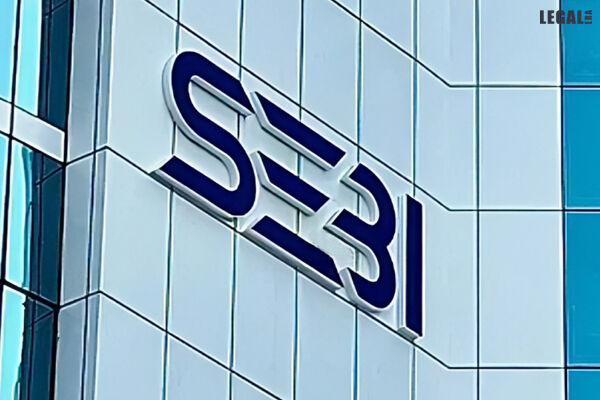
Gensol Engineering’s Jaggi Brothers Face SEBI Ban
The two were once celebrated for their renewable energy ventures
The Securities and Exchange Board of India has accused Anmol Singh Jaggi and Puneet Singh Jaggi for siphoning funds from Gensol Engineering for personal use, leading to a market ban.
SEBI’s probe revealed diversion of funds used for luxury purchases and investments, raising serious concerns about corporate governance and shareholder interests.
The brothers were once celebrated as rising stars in the country’s renewable energy sector, having launched two prominent ventures Gensol Engineering and BluSmart Mobility. They quickly gained recognition for their contributions to clean energy and electric mobility.
However, in a dramatic turn of events, SEBI barred the Jaggis from accessing the securities markets until further notice.
Gensol provides solar consulting services, engineering, procurement and construction (EPC) services, and leasing electric vehicles.
Listed on the Bombay Stock Exchange (BSE) SME platform on 15 October 2019, it migrated to the main board of BSE and the National Stock Exchange (NSE) on 3 July 2023.
Over the years, the company saw rapid growth with sales rising from Rs.61 crore in Financial Year 2017 to Rs.1,152 crore in Financial Year 2024. Its operating profit jumped from Rs.2 crore to Rs.209 crore, while net profit rose from Rs.2 crore to Rs.80 crore.
Gensol’s balance sheet expanded from Rs.10 crore in Financial Year 2017 to a whopping Rs.2,202 crore in H1 Financial Year 2025. Its borrowings grew from nil to Rs.1,045 crore and peaked at Rs.1,260 crore in Financial Year 2024.
The company’s shareholders count surged from 155 in Financial Year 2020 (when listed on the BSE SME Platform) to 1,09,872 as of 31 March 2025. At that time, its promoter holding came down from 70.72 percent in Financial Year 2020 to 35 percent as of 31 March 2025.
Gensol’s stock performance reflected its healthy performance.
During 2024, the stock price touched a high of Rs.1,126 per share with a market capitalisation of Rs.4,300 crore. On 11 April 2025, the stock traded at Rs.133 per share with a valuation of Rs.506 crore.
The company’s fortunes changed after SEBI received a complaint about manipulation of share price and diversion of funds and the market regulator began its investigation.
In March 2024, credit rating agencies, Care Rating and Icra downgraded the company’s ratings for fund-based and non-fund-based credit facilities to ‘D’ due to delays in servicing debt obligations.
Icra disclosed, “Certain documents shared by Gensol Engineering with Icra on its debt servicing track record, were apparently falsified. It raises concerns on its corporate governance practices, including its liquidity position.”
Thereafter, Gensol issued an investor release, signed by its CEO Anmol Singh Jaggi. The firm categorically denied “any involvement in falsification claims” made by Icra.
SEBI sought information from the credit rating agencies about downgrading Gensol’s ratings.
Thus, Care and Icra submitted that pursuant to the media reports concerning default by Jaggi brothers’ company BluSmart, they reviewed the ratings assigned to the Gensol.
Subsequently, Gensol responded to the queries of the credit rating agencies.
It stated being regular in its debt servicing and the default by BluSmart had no impact on Gensol.
However, Care and Icra further submitted that when they sought term loan statements, Gensol provided the statements of all lenders except those of Indian Renewable Energy Development Agency Ltd (Ireda) and Power Finance Corporation (PFC).
For the two lenders, Gensol shared Conduct Letters purportedly issued by Ireda and PFC, which stated that Gensol was regular in its debt servicing.
Care stated that Gensol requested the withdrawal of the ratings assigned to it and, in support of the request, it submitted a ‘No Objection Certificate’ (NOC) issued by the lenders.
However, when SEBI sought confirmation from Ireda and PFC on the issuance of the Conduct Letters and NOCs, the lenders categorically denied having issued such letters.
The regulator then demanded detailed information from Ireda and PFC about the debt servicing status of loans sanctioned to Gensol.
On reviewing the information, it observed multiple instances of default by the company in servicing their loans.
It is to be noted that from Financial Years 2022-2024, Gensol secured Rs.977.75 crore in loans from Ireda and PFC. Out of this, Rs.663.89 crore was for purchasing 6,400 electric vehicles (EVs). However, Gensol acquired only 4,704 EVs worth Rs.567.73 crore. This was admitted by Gensol and confirmed by Go-Auto, the supplier.
Meanwhile, Gensol was required to provide a 20 percent equity contribution. Thus, the total outlay should have been Rs.829.86 crore, leaving an unaccounted amount of Rs 262.13 crore.
SEBI thus held that the funds meant for EV purchases were often routed back to Gensol or entities linked to the Jaggi brothers. Some of the funds were used for personal expenses of the promoters. These included, the purchase of a luxury apartment, transfers to relatives, and investments benefiting private entities owned by the Jaggis.
Of these, one of the most striking disclosures was the use of Rs.42.94 crore, routed through Anmol Singh Jaggi’s Capbridge Ventures, to finance a luxury apartment in DLF Camellias.
Additionally, Rs.50 lakh was allegedly invested in Ashneer Grover’s startup Third Unicorn. Personal travel and leisure covered other funds.
Furthermore, Rs.6.20 crore was allegedly diverted to the Jaggi brothers’ mother Jasminder Kaur, while Anmol Jaggi’s wife Mugdha Kaur Jaggi received Rs.2.98 crore.
Other extravagant expenses included personal spending of Rs.26 lakh on a golf set and Rs.3 lakh for travel via the MakeMyTrip platform.
To add to it, Puneet Jaggi allegedly diverted Rs.1.13 crore to his wife and Rs.87.52 lakh to their mother. Some of the funds were used for credit card payments.
SEBI blamed the promoters for running the company like their personal “piggy bank”, routing funds to related parties and spending without regard for the interest of the shareholders.
The transactions implied that those would be written off from the company’s books, ultimately resulting in losses to the investors.